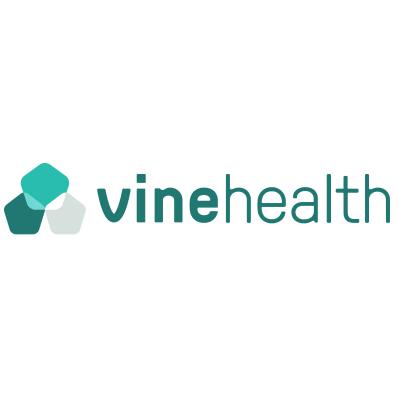How to optimise delivery of patient support programmes in cancer

Patient support programmes (PSPs) hold great promise for oncology patients, healthcare professionals, and pharma companies by bridging the gap between clinic and home care. However, these programmes often fail to deliver the dynamic and personalised user experiences that have become the norm in other industries.
On Thursday 23rd February, in a webinar developed in association with Vinehealth, a panel of industry experts sought to answer the important question: how can digital and AI optimise the delivery of patient support programmes in cancer?
Before the panel dove into the body of the discussion, Vinehealth's Dr Rayna Patel set the scene for attendees. She began by spotlighting the importance of delivering patient support that is timely, convenient, and patient-centric. However, in the current oncology landscape, there is a dearth of information available to support patients between appointments.
"We have a real sizeable drop off in drug effectiveness from what we expect from clinical trials and what we actually see in the real world and that drop off is really particularly obvious in oncology," she explained. "The research is increasingly telling us why. It is because we are not supporting patients on these really toxic drugs to take their medications and manage their side effects well, to communicate with their care teams, and we don't support clinicians in the hospitals to provide that kind of care at scale."
Delivering these kinds of patient support programmes is really all about engagement. It is only through engaging with real patients that we can truly understand them, what they are going through, what they are struggling with, and what is preventing them from reaching optimal outcomes with any given therapeutic.
This means gathering tangible real-world patient-reported outcome data that can be used in post-marketing decision-making, allowing clinicians to remotely monitor their patients, even to predict and pre-empt deteriorations. In other words – to optimise real-world treatment outcomes, we need to engage with and support patients. And evidence shows that how well we do that will ultimately determine the real-world success of emerging therapeutics.
This, she explained, is where patient support programmes can be highly beneficial in optimising outcomes for patients, clinicians, and pharma companies.
Improving cancer survival rates in the UK
With her brief overview complete, Patel handed the reins over to Jack Harris, vice president of Oncology UK at GSK, for a closer look at the current landscape of cancer research.
Opening his presentation with a "birds' eye view" of the journey against cancer in the UK, Harris began by spotlighting findings from a recent report by Cancer Research UK. Unfortunately, he noted, the report revealed "unsurprising but sobering statistics". While survival rates are indeed improving, cancer remains the UK's biggest killer, accounting for one in four deaths in the UK in 2019. Improving survival rates are certainly a positive development, but Harris highlighted it is also important to understand where the UK survival rate ranks alongside comparable countries, in order to gain a clear view of progress. At present, the UK is lagging behind similar markets in terms of five-year survival rates (31.8% compared to Australia's 40.7%).
As Harris highlighted, there are myriad reasons contributing to the current oncology landscape. Thinking about the topic of maximising the benefit of cancer therapies, though, he noted one particularly pertinent statistic from the Cancer Research UK report, which denoted how well people think the health service is resourced to be able to support patients in their cancer journey adequately.
"Whilst an overall favourable patient experience was reported in the UK," said Harris, "I found it quite startling that almost 80% of people in an over 280,000-respondent survey said that they did not believe that the health service has enough staff or equipment to see, test, and treat all the people living with cancer."
So, where can we look to potentially improve patient outcomes, when we know we operate in a resource-constrained environment?
"We know today that we had limited insight into what happens to a patient in their journey with cancer in between their interactions with HCPs and the health service, but we also know that this is where the majority of the lived experience occurs," explains Harris. "If patients can track and share their lived experience with their HCP, that intervention alone can drive an increase of five to seven months."
"Seeing that this level of overall survival benefit can be achieved alone through patients sharing their lived experience with their HCP really speaks to the potential of where PSPs can improve health outcomes for cancer patients in the UK."
Turning his attention to discussing the benefits of PSPs for industry, Harris showcased responses from the 2022 AcrossHealth Navigator365 UK report, Oncologists and Haematologists. Given the level of digital adoption fuelled by COVID-19, he noted, it shouldn't be too surprising to see that 50% of HCPs see an increase in remote patient interactions in the next six months.
"This is one of the areas that HCPS are telling industry that industry can lend a hand of support to," he noted. "70% of HCPs see value in pharma-led PSPs, with more than 30% of those being specifically in digital support programmes."
Expanding the scope of performance measuring
To demonstrate how PSPs can enhance patient care from a clinical perspective, director of breast surgery at Cromwell Hospital and chairman of the Breast Cancer Board, Mr Giles Davies began his section of the webinar by discussing innovation within healthcare delivery, particularly how innovations can help to provide more holistic care for patients.
Using his work at Cromwell Hospital as an example, Davies discussed how both the hospital and the wider Bupa network have shifted away from a more structural and processed method of measuring key performance indices and delved into the heart of the patient experience. A transition that, he says, has led the hospital to look at digital solutions to monitor and measure those patient experience points to evaluate care more accurately.
Traditionally, he explained, hospitals measured outcomes based on elements that may not resonate with patients undergoing their oncology journey, such as length of stay, number of incidents, and adherence to NICE guidelines.
"There has been very limited measurement of patient-centred outcomes and patient experience," said Davies. "These have always been seen as slightly soft metrics, when in fact they are probably the most import of the quality of care that you give."
Drawing from his own experience to illustrate how this can work in practice, Davis spotlighted the process of shifting breast cancer screening and care at Cromwell Hospital to a value-based outcome-based healthcare model. He explained that the team assessed value as outcomes that matter to patients, over the cost spent to achieve outcomes.
To do this, the team worked to define what the patient really needs and where they need it, then put that pathway around those needs, bringing all of the practitioners – irrespective of their department – to the patient, based on their condition. Measuring patient outcomes digitally is really the centre point of this approach, he explained.
"We set up a pilot with Vinehealth around using longitudinal symptom tracking and remote delivery of patient-reported outcome measures (PROMS) to see if we could improve the engagement of our patients and perhaps start to develop an understanding of what our patients are experiencing in between or during chemotherapy or other treatments post-operatively."
"In a really short space of time, we were able to improve the response rates from digital PROMS from a very low rate of 10% to up to 75%. By building a collection of PROMS that can be delivered remotely, we are able to measure the effects of treatment over time. The symptom tracking is also an opportunity for us to develop early warning systems, allowing us to intervene early through escalation pathways and alert systems, so we can predict and start to understand when patients may be getting into trouble, without them having to access through the traditional pathways."
Notably, he ascertained that, because digital solutions allow for longitudinal continuous symptom tracking - something which has not previously been available - symptoms or concerns that may have been underreported in a face-to-face setting can be captured to provide a more holistic understanding of how the treatment is progressing.
Building on the momentum of PSPs
To close the webinar discussion, Patel turned the panel’s attention to the future. Specifically, she invited both Harris and Davis to lay out what they deem the most important next steps towards optimising patient support programmes.
For Davis, the COVID-19 pandemic highlighted that the NHS and the independent sector can work together and deliver highly successful outcomes. Now, with precedent in place to support the benefits of integration in healthcare delivery, it is time to apply this approach to other areas of healthcare.
“We need to deliver care to the right patient in the right place at the right time, and with the right people,” he explained. “So, if you design a pathway, centre the patient around it, and integrate your services and try to relentlessly focus on removing barriers to integration – I think that is going to be the solution in the digital space.”
Harris echoed this commitment to integration, while also spotlighting the need to keep patient centricity at the heart of decision-making. Companies should also be open to exploring collaboration, he said, rather than attempting to create every element in-house.
"I think, as an industry, we need to wake up and realise that there are different business models through which we can still achieve the same, if not even greater, success commercially that maybe we didn’t look at as much pre-pandemic. Let’s have a look at our business models, our commercial models and see if there is a different approach that we can take that will increase benefit for everyone.”
Continuing the momentum encapsulated within these sentiments is going to be challenging. However, as Patel highlights, the promise that patient support platforms have demonstrated in oncology plays to the strengths of both industry and healthcare professionals.
“It’s clear that there is really room for us to think more scientifically about how we enact behaviour change, patient engagement, and medication adherence, which pharma and clinicians are both very good at doing," concluded Patel. "So, there is a lot of hope that we can really transform patient outcomes with this increasing belief in a patient support-led approach."
To learn more about optimising PSPs in oncology, watch the full webinar on-demand here: https://www.brighttalk.com/webcast/9977/571618
About Vinehealth
![]()
Vinehealth’s platform uses behavioural science and AI to increase the quality of life and survival of cancer patients. The Vinehealth mobile app allows patients to track, understand, and optimise their care, supporting them to feel in control and better self-manage. Patients can track data on symptoms, side effects, medications, and appointments.
This information is seamlessly integrated with lifestyle data from smartphones and wearable devices, and machine learning delivers highly personalised behavioural nudges to support self-management. Through this, the platform generates highly valuable patient-reported outcome data and real-world data to inform healthcare delivery and drug development.











